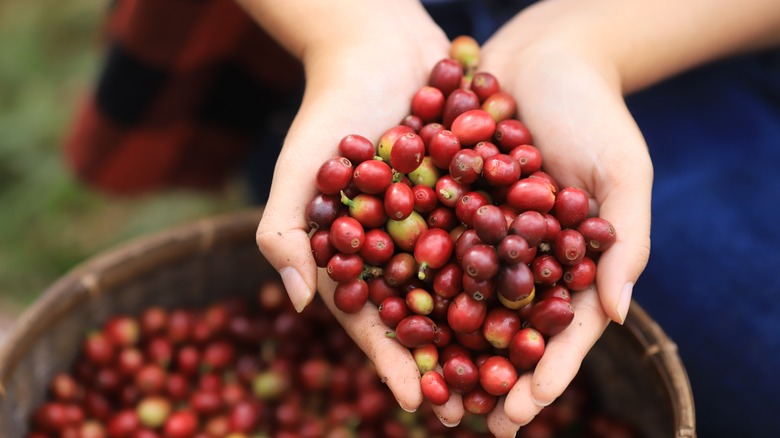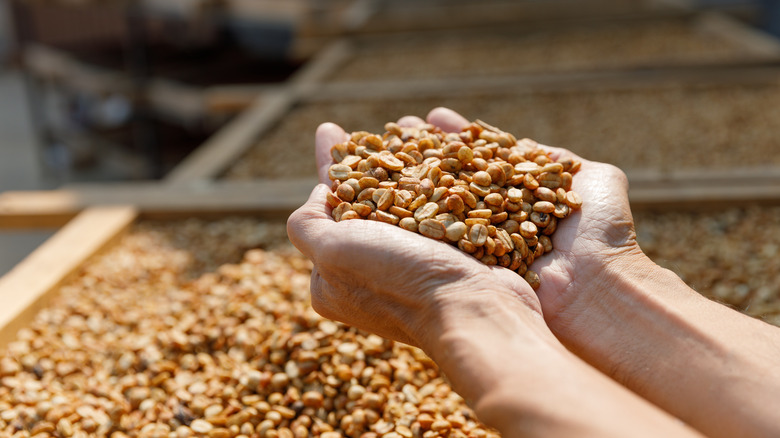What Exactly Is Honey Coffee (No, It's Not Honey-Flavored)?
Just as you've gotten a hold of the specialty coffee basics, like whether you prefer blends or single origins, cortados versus macchiatos, and knowing when a shot of espresso has gone wrong from over or under extraction, a new phrase gets tossed in. When you hear the term "honey coffee," you may turn your nose up at the notion of flavored coffee. But this specialty coffee trend actually has nothing to do with honey from bees. Honey coffee is a specific term for how coffee is processed, which occurs after the coffee fruit is harvested and before it's roasted.
In the coffee world, beans from coffee berries are most commonly called cherries and need to be sorted between good and spoiled, cleaned, and dried before being shipped off and sold, just like any produce. And because roasters aren't interested in the fruit of the cherry but rather the pit we know as coffee beans, the fruit is removed beforehand. How they are prepared can happen in a few different processing methods, such as washed, semi-washed, natural, and honey processing. Honey processing is a hybrid between the washed and natural methods and leaves a sweet, sticky syrup or pulp behind on the beans, akin to honey.
How is honey coffee processed?
To understand honey coffee, it's important to understand the fundamentals of washed and naturally processed coffees. Washed coffee cherries have the fruit stripped away completely from manual scraping and rinsing in water. This leaves you just with the beans, which get left to dry before being shipped to their designated roaster. This process removes some of the more tangy, varied notes of the bean, which leads to a more consistent cup of coffee. Naturally processed cherries, however, don't have the fruit removed but are left to dry as a whole berry. Once the cherry is completely dry, the beans are hulled out. Before they are pitted, the cherries will inevitably ferment, leading to some brighter but less predictable flavors. At best, they are tantalizingly funky and, at worst, undrinkable.
Honey processing is considered a hybrid of these two methods. In honey processing, the cherry fruit and skin are immediately removed, but the beans are not washed in water afterward. This leaves a tiny layer of sticky pulp, or honey, on the beans. Then, the beans are left to dry before being shipped away. The result is a coffee that isn't quite as varied in flavor as a fully naturally processed coffee but a slightly brighter and more exciting bean than fully washed beans, making it a must-try for coffee enthusiasts.

